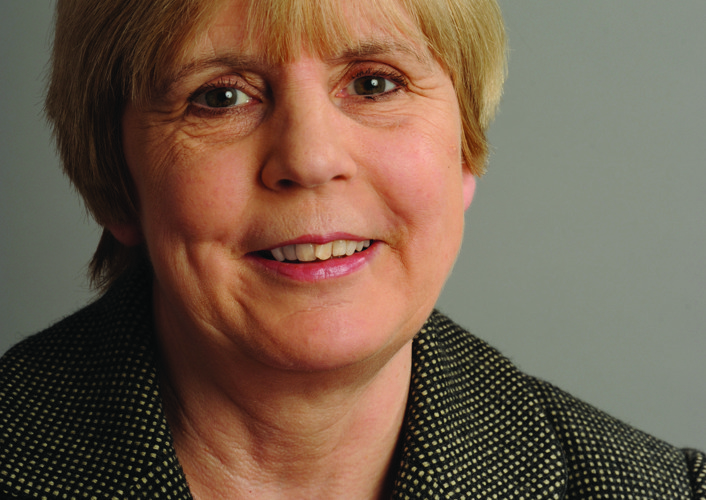Helping a neighbour

Pioneering co-founder Marion Gibbs, also Headmistress of James Allen’s Girls’ School (JAGS) London, explains what Southwark Schools’ Learning Partnership (SSLP) collaboration, which began 11 years ago, looks like from the inside…
I have been deeply engaged in an extensive range of independent-state school partnership activities for the past 20 years and such projects work well because they are based on true collaboration and not on some patronising concept of “crumbs from the rich man’s table”.
JAGS is certainly not an ivory tower or a bastion of privilege. We are an inner-city school where 50 home languages are spoken and we currently have 126 students who hold means-tested bursaries – about half receiving 100% fee remission, uniform, lunches, travel to school and trips, the rest averaging 89% remission. We regularly send girls from underprivileged backgrounds and other under-represented groups such as Afro-Caribbean heritage to top universities, where they are instantly classified ever after as coming from a privileged independent school background. We have no offspring of oligarchs nor an overseas branch. Many independent schools are like us.
And almost all independent schools are currently actively engaged in working with local state schools and this is not just confined to lending the occasional sports field, as has been suggested.
What does real collaboration look like?
It is where staff and students from both sectors work together to improve and develop their practice and to share and develop ideas which lead to enhanced learning and higher achievement. One of the collaborations in which James Allen's Girls' School (JAGS) has been involved is the Southwark Schools’ Learning Partnership (SSLP), which I co-founded with a state school head, Dr Irene Bishop, in 2003.
Over the years it has involved 10 state secondary schools and 3 independent schools, with a regular annual membership of 9 or 10 schools. Teachers from the independent schools have gained additional experience by spending time teaching in the state schools and vice versa, including newly qualified teachers.
Yes, it is true that we have had pupils from a neighbouring state school taking Latin and Music at A level in our school – but that is just helping a neighbour and could work either way. Whenever any school is providing a training event for staff, or an outside speaker for students or a visiting theatre company or such like, we automatically invite participants from our partner schools if we have space. We have established mini-networks for teachers in different subject areas; they visit one another in their schools, observe lessons, and discuss syllabus changes and good practice.
We share expertise and contacts in providing mock university interview practice. One school may run a BMAT preparation day, another may focus on LNAT. We have had a partnership with a company providing specialist careers advice and team building days: students interested in a particular career area come together in one of our schools for a day of specialist talks and activities and all benefit.
We have organised major projects across all our schools with students working on themes such as “what helps us to learn well” and presenting their findings to one another in a day conference. We sing together, act together and debate eco-issues together. A typical smaller scale example would be a recent Geography after-school session. Sixth form students from a number of local schools, including some from neighbouring boroughs, not just Southwark, who were interested in studying Geography at university met together over tea and cakes to discuss some challenging geographical issues and share their passion for the subject; meanwhile their teachers met in the next door classroom to exchange views and ideas on the new GCSE and A level specifications. This is true collaboration not patronage!
Our most challenging project is one which we have recently undertaken for the London Schools’ Excellence Fund. Springing from the SSLP, we have set up a network of state and independent schools, including some from Lambeth, Greenwich and Lewisham as well as Southwark, and teachers are working together to produce innovative learning resources for the new, more challenging Key Stage 4 syllabuses in Chemistry, English, Modern Languages and Physics; these materials will then be shared across London schools. Some of the subject groups are led by state school teachers and some by one state and one independent school teacher – neither sector has the monopoly of good practice. We learn best together, with and from one another.
The final irony of all this is that both the Labour and Conservative parties seem determined to make all state schools into academies or free schools, which are classified as independent schools – what scope will that leave for independent-state school partnerships?
